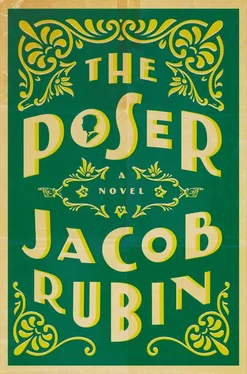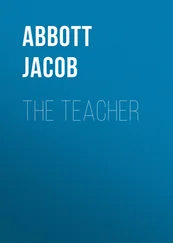Heedling. Whatever interests had led him to the profession of teacher, a desire on his part to spend his weeks in the company of thirteen-year-old boys and girls could not have been counted among them. The paraded sense of humor, the jaunty manner some teachers perfect so as to endear themselves to adolescent tastes, Heedling never attempted. He spoke to us like a drunk at a bar: often gruff, rarely dishonest. Word was, he had been discharged from the army after falling victim to, or helping perpetrate, a massacre on a distant, palm-treed island. His method of instruction was one of impassioned repetition. The previous week he had repeated, Don’t you envy Sisyphus ? We were forced to scribble it in our notebooks thirty times.
“What did Helen of Troy look like?” he asked that day.
As he lectured, he stalked and circled our desk-chairs, curling Mary Hammerworth’s Anthology of Greek Myth around its spine. Since he could fly into a rage if he suspected the slightest bit of daydreaming or note-passing, the class did its best to strike postures of attention. For my classmates, I guess, this involved some theater. Not for me. I loved the Greeks. They weren’t like other stories where you, the reader, decide if they are any good. Questioning Atlas’s or Icarus’s fate was like complaining the ocean rolled the wrong way or the sky carried the weather with too much pomp.
Inspired by those stories, I’d been on good behavior all semester. Each fall was that way, offering a brief window of renewal. In recess I watched the older boys play stickball. The way they strode and wound up to fling the ball, all of it such glamorous evidence of what growing up could do, and every night I went to bed hoping the Big Change would happen, that I would stretch to six feet tall and say goodbye to all that trouble at school.
In fact, things had been looking up. I had even volunteered in class, a once-unthinkable risk made possible by a new strategy. That is, I had begun using the voice of Jimmy Nelson, the bemused and even witty son of Danny Hoagland’s neighbor on the popular radio program The Hoaglands . It seemed a safe choice. For one, Jimmy Nelson appeared on the show irregularly, and when he did, existed, mainly, to air concern in the face of Rascal Hoagland’s latest lawn-ruining mischief. His very off-to-the-sidedness appealed to me.
“Tell me now, what did she look like?” Heedling asked.
“My mother,” Philip Howes volunteered. Philip sat in the front row and was always offering a first response to Heedling’s questions even though our teacher had never approved of his answers and once, in a fit of anger, called him a “true egg sucker.”
“You are wrong !” Heedling said. He asked Alice Krut, who sat behind Philip: “What did Helen of Troy look like?”
“Rebecca Rell, the cheerleader.”
“Absolutely incorrect.” He asked Adrienne Chitwood, who sat behind Alice: “What did she look like?”
“A movie star.”
“Oh, god.” He addressed the classroom. “What did she look like?”
Silence.
“Jesus Christ.” He turned to draw on the board. Because Mr. Heedling possessed exquisite peripheral vision, no one misbehaved, even when he faced the blackboard. He often called on Todd Willinger, third seat, row five, while looking at Mallory Mayhall, first seat, row one. Someone once asked him why he did this, and he gave that person detention.
With staccato strokes, he drew a stick-figure face: two tiny circles for eyes, a line for a nose, line for a mouth. Then he drew curly sprouts of hair. “Helen of Troy!” As with many of Heedling’s lessons, it was hard to tell what the lesson was, but a fury of passion was behind it, so you knew you were missing something. When he taught us the myth of Orpheus, he kept saying, Music is when something disappears , hovering over us as we scribbled the saying ten times into our notebooks. “Helen of Troy!” Heedling said again, looking almost pleased.
“That’s just a face,” Philip Howes protested.
Heedling stopped and looked at Philip. “Philip,” he said, “be very, very careful.” He marched behind us, to the other side of the classroom. “ Helen of Troy! The one and only !”
He was wrong, though. Helen of Troy inhabited our very classroom, three rows to my right through a thicket of profiles. Her name was Margot Stamfield, and she was the chandelier in my brain. Every class I studied her face: the subtle lift of her chin, the hint of a smile. Once when I was heading down the fourth-floor stairs, repeating, “Don’t you envy Sisyphus?” (Heedling’s phrases were like sucking candy to me), I rounded the landing to find her standing there, in all her Martian beauty, clutching a textbook. “Envy him, goddamnit!” I yelped, and sprinted down the stairs.
“Copy this in your notebooks,” Heedling said, stalking the class. A flurry of turned pages. The mouse noise of pencils. “This is a very important face, remember! Essential. Without it, you — what’s this, Ms. Stamfield?”
“It’s what you wanted,” Margot said. Heedling hovered over her desk-chair, I saw when I looked up. “To draw it ten times,” she said.
“Is it? Is this what I wanted, really?” With a light-footed movement Heedling all but danced to the front of the class where he drew, with quick, impassioned stabs of chalk, a second Helen of Troy. The chalk dusted his hands, a very specific feeling. This new figure, Margot’s presumably, looked admirably close, if not identical, to the first. “The same, really ?”
“They are, right?” she said.
“Are they, though?” Heedling grinned, approaching her desk again. He could move stealthily, too, with quick, catlike steps I liked to practice.
“I–I think so.”
“Perhaps you’re thinking too much , Ms. Stamfield.”
Her lip began to quiver.
“Ms. Stamfield, no need to get emotional, I am simply asking—”
“Ms. Stamfield, I am simply asking!” I found I was pacing along the side of the classroom. I grabbed a piece of chalk, to feel it on my hand. “I’m asking,” I repeated, “if you can answer me that , please? Write the answer ten times, please! I’m asking if you can write the answer and erase it ten times! No, eleven, please, erase it, yes !” Mr. Heedling reddened in the corner of my eye, but my classmates laughed uncontrollably, laughed in that bottled way, as if soda were bursting out of their noses, Margot among them, and I turned to them and began laughing, too. Yes, this laugh was so delicious, it burst out of me, more and more of it until their faces blanched, Margot’s most of all, as though some mean ghost were parading before them. Yet the laughter kept cascading out my nose, so much of it, like the handkerchief a magician endlessly pulls out of his pocket. Someone grabbed the back of my neck—
“Get out! Get out!…” I did it for Mama at the boardwalk. “You little — Brrring… Brrr. Why hello, Principal Derringer’s office — yes, of course. Helen of Troy. Of Troy! ”
When I looked back at her, Mama was beyond laughter, already casting her look at me, her Look, I should say, for Mama’s eyes were unnaturally big, like sideways teardrops, and could do things no one else’s could. It was all the parts of her you couldn’t reach, that interior mystery, pushed against their furthest limit, and you gathered how much she hated the rules of bodies, that one person could be only one and that certain spaces would always separate us. Most rooms just weren’t big enough for her.
“You found his thread,” she said. “And you want to pull it, don’t you? Undo his whole costume.” She reached out her hands for me, and I sat in her lap. She growled and squeezed me, crushed me for a moment, in the near-violent way mothers do. The sky was getting grayer. Soon winter would come when darkness falls at four o’clock, and the stars make sad dreaming babies of all the world.
Читать дальше












